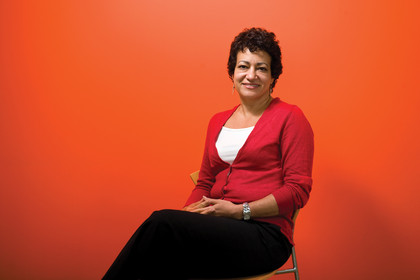The future of Ubuntu revealed
Linux Format meets Jane Silber, Canonical CEO

LXF: Could you give us an idea of how many people are working on Ubuntu on ARM?
JS: It's hard to identify a specific number because there are people across the company, it's an integrated piece of the company.
Some people on the Ubuntu server team, Robby Williamson, work to ensure that Ubuntu works both on Intel and ARM hardware… we don't have a dedicated ARM team, we as much as possible treat it as another architecture that we have to support. So it's part of our QA team, automated builds, automated testing, etc.
LXF: I know you said you had no case studies on ARM, but are there any Ubuntu case studies, on the server or desktop, where you're really proud of what's happening?
JS: Oh, there are loads! Some of the more recent ones have been on the cloud. We've just released a case study with Mercadolibre, which is a South American cloud provider, which built a cloud with 1,000 Ubuntu nodes - so a good-sized Open Stack, Ubuntu-based cloud.
On the desktop side, we've recently done a very large deployment in South Africa in an education setting, which is in 1,600 schools - 50,000 Ubuntu desktops, which combine to reach two million learners. It's a shared resource. Basically, it's providing connectivity and a cloud-managed desktop across the Gauteng province.
We've done it in conjunction with a South African partner, and I think it's the largest open source deployment of its kind in the southern hemisphere. So we continue to see good, interesting growth, both on the server side, which is largely cloud, big data, web server scaling operations; and on the desktop it's large enterprises, government and private.
Get daily insight, inspiration and deals in your inbox
Sign up for breaking news, reviews, opinion, top tech deals, and more.
LXF: Moving on to Ubuntu 'elsewhere', on TVs and mobile phones… I guess one of the big questions is, everyone's sure you can get the software together, but the challenge most open source projects have is getting the hardware partners and the software distributed to customers. Could you tell us about your efforts to get partners on board?
JS: It is a significant effort for Canonical. Luckily, it's something that we've been doing for years now. A large part of what we do as a business, that we can provide to help Ubuntu, and that the community can't do, is improve those commercial partnerships and relationships.
We've been working in that industry, particularly in Taiwan and China, for many years and have very good relationships across the board with all of the major players. So we are working hard to bring both Ubuntu TV and Ubuntu for Android to market.
Our go-to-market plan is absolutely through a hardware vendor. We're not going to start making and selling hardware ourselves. We are working to line up those engagements to bring us to market, and because it's their product and not ours, I can't give accurate timelines on that.
LXF: This is a direction Canonical's pushed for in the past, in partnership with Dell on Desktops, and on Netbooks with Ubuntu Netbook Remix, and your efforts didn't pan out quite as you'd hoped. Do you feel you've learned from that and developed relationships that are helping you now?
JS: Yes, I think we have. We've learned a number of lessons. I think the industry has changed, the dynamics have changed. I think netbooks were a good idea that was overtaken, hampered by the hardware itself, and struggled to find its appropriate place in the market.
Was it a low-cost? Was it a highly mobile laptop? And aiming at those different markets would drive you to different hardware specs and different software loads on there.
I think one of the things we learned from the Netbook experience was the value of defining the software experience, and it was around then that we started defining Unity as a product and taking more control of the user experience… not control of it, but defining our vision for the user experience for the software experience on top of that, and being more opinionated. And I think that's led to a more compelling user experience and suite of Ubuntu products.